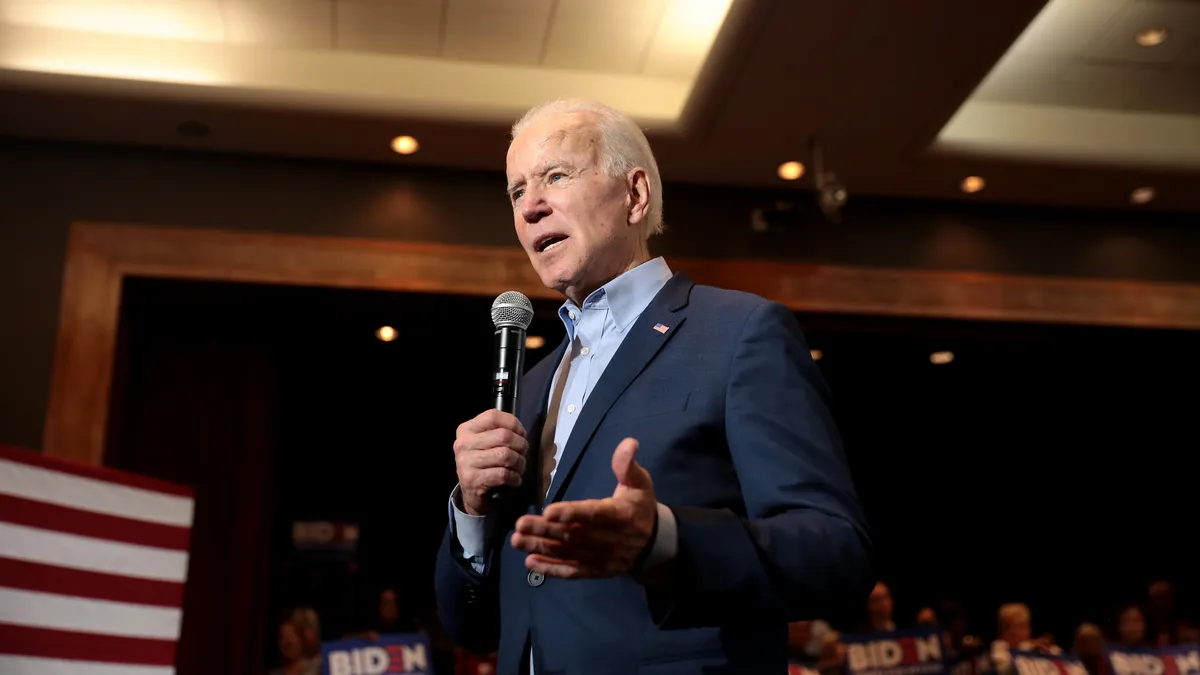Dive Brief:
- A pitch to improve community colleges' facilities and technology is part of President Joe Biden's $2 trillion proposal for upgrading the nation's infrastructure.
- The president is asking Congress to allocate $12 billion to states to invest in existing physical and technology infrastructure and to improve access to community college in areas with few or no postsecondary options.
- Biden pledged a slate of higher education investments on the campaign trail, including $8 billion for two-year schools to upgrade their facilities and tech.
Dive Insight:
Biden's sweeping American Jobs Plan also calls on Congress to distribute $100 billion to upgrade and build new public K-12 schools as well as $25 billion to expand access to childcare and improve those facilities.
It is an "ambitious" proposal, Thomas Brock, director of the Community College Research Center, said in an email. "I am sure it matches or exceeds expectations by most community college leaders for infrastructure support."
Biden emphasized investing in community colleges during his campaign. In addition to revamping their infrastructure, he promised funding for workforce training, student success initiatives and emergency student aid.
He also pledged federal support for tuition-free community college, but some higher ed observers have said states may not be able to afford that expansion in light of the pandemic's impact on their budgets. An earlier report about an infrastructure package suggested it would include a tuition-free community college proposal.
Community colleges are financially strapped. The two-year sector takes in less tuition and fee revenue, and generally gets less state aid, than the four-year sector. And local support for community colleges doesn't make up the gap. As a result, community colleges bring in around half the revenue per full-time equivalent student as public four-year schools, according to one recent analysis.
However, they tend to educate students with high financial need, and research links institutional spending with student success. Advocates say more financial support for community colleges is critical to closing higher ed's equity gaps. And some higher ed experts say institutions need more funding to expand community college access through free college programs.
The pandemic is delivering a deep blow to the community college sector. Those schools' overall enrollment was down 10% this past fall, and they'll likely lose more state funding than four-year schools.
"Community colleges are asked to do more with less — but at some point, they can only do less with less," said Brock, who noted that their biggest financial needs are around instruction and student services.
Josh Wyner, founder and executive director of the Aspen Institute's College Excellence Program, said a one-time infusion of federal funds could be less effective for supporting instruction and student services. He's hopeful colleges would use the money to work with four-year institutions, K-12 schools and employers.
That could include purchasing expensive equipment and software for technical programs. "To the extent that community colleges use a portion of this money to expand programs that are in high demand, that lead to good wages, this will be a godsend," Wyner said.














